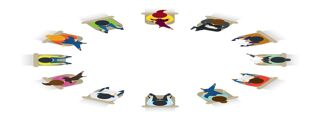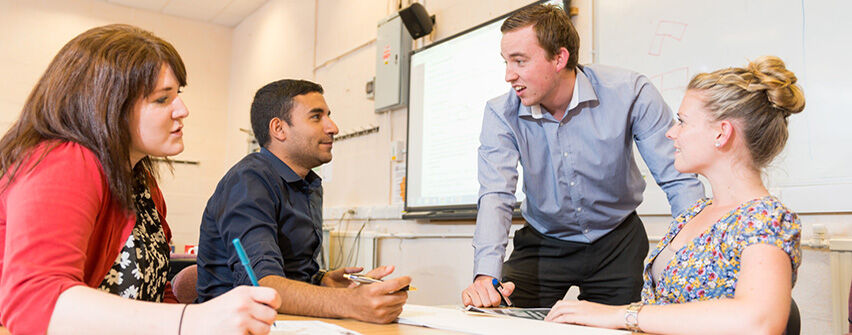This blog draws on the author’s exploration of theory. Ivan Illich’s work, Deschooling Society, acts as a focal point for reimagining the classroom in a non-institutional context, whereby learners form networks of knowledge centred around shared interests and communities (of practice).
‘The classroom remains the most radical space of possibility in the academy.’
Ivan Illich (1995) opens Deschooling Society with a treatise on why schools should be disestablished, immediately setting his position not as an educational abolitionist but as the proponent of creating radical learning spaces for all. Similarly, in Teaching to Transgress, hooks (1994) posits the classroom as a radical space of possibility. There is a problem with this, however. The focus remains too narrow. Using these specific sections of the text, we – as practitioners - often concern ourselves with education as a tool for the development of children. As a consequence of this narrow thinking, we still conceptualise learning as having to take place in a school or a classroom, just differently – I’ve already done it multiple times in this first paragraph.
What if we could reimagine the classroom (there I go again) as not a classroom at all but merely a space for the advancement of knowledge and learning? Doesn’t that open up more of those possible radical spaces? Of course, when we move away from the institutional ideas of education, we have to consider the consequence of control or power – who decides what is learned? Should there be a decision in the first place?
Bringing Illich back into focus, he proposes a solution for the deschooled society: learning webs. These webs of learning come in various guises, but Illich mainly expounds on two forms – skills exchanges and peer matching – both of which are reasonably self-explanatory and also present within today’s digital society at small scales for learning experiences such as language acquisition and cookery. These learning webs are often formed through common interests, e.g. Spanish learners may team up with English learners to exchange cultural knowledge and assistance in reading, writing, and speech. Obviously, the deschooling of society is unlikely under the current world system, so it behoves us to find radical solutions which can exist within the contemporary paradigm that we live in. This is where my research comes in.
Football (or soccer, for some) is one of the most popular games in the world, played by millions and watched in its sport form by even more. The people who watch football are part of large but almost entirely imagined communities (Anderson, 2003; Kalman-Lamb, 2021), which coalesce around various identities ranging from national identity (The Tartan Army, The Boys in Green) to the local and regional identities which are represented through clubs. The fans who form these communities are often the latest inheritors of cross-generational relationships spanning decades and therefore feel a sense of kinship akin to that of an extended family. In this (perhaps) artificial closeness, I posit we can find opportunities to observe and experience learning webs in an organic and unconscious form. Illich’s learning webs are deliberate and set as an opposition to the institution. In contrast, the learning webs of fandom (this is not unique to football) are naturally occurring and can exist in concert with the current institutions that form our educational system.

What, then, does a learning web look like in a football fandom context?
Part of the beauty of a natural learning web is that it is hard to pin down as being one specific learning experience, but a few examples are:
- Songs and chants – no one writes them down; you learn as you go from the person standing next to you. Listening to one another is an exercise in recognition (hooks, 1994)
- Behaviour – this can have its positive and negative connotations if we look at the recent pitch invasions
- Social skills – football is one of the first places where you can interact on a (more) equal level with an adult. Learning how to talk about things in a ‘grown-up’ way with ‘grown-ups’ is a theme that my primary research has highlighted as an important developmental point
- Formal education skills such as maths, business and geography – placing knowledge into a football context can make it more accessible
- Storytelling – this can encompass all of the above
These examples may seem obvious, and yet they are not. It is obvious that we learn what words to sing, but it is less obvious that we learn them through immersion in group behaviour rather than revising as we would for an exam. But these things stick, so the learning must be valid. My question, or my provocation, is not what football fan culture can learn from the academy but what the academy can learn from football fan culture and other cultures that exist and engage people on a deeper level across time, space, language and nation?
Parts of my own educational journey have straddled the traditional and non-traditional, evoking a sense of ‘edgewalking’ (Krebs, 1999) or, more academically, hybridity (Crozier et al., 2019). Therefore, it is perhaps unreasonable to assume that our students’ journeys have been straightforward when we know the trials we ourselves have had to face. In keeping with hooks’ desire to transgress and flip the balance of power within the academy, I am always looking for different ways to privilege the voices that are often unheard within our spaces; my dissertation had entire sections written in ‘yam-yam’, or Black Country vernacular, as an attempt to reclaim my own space within the academy as one which is safe for those forms of language which were viewed as restricted(ive) according to Bernstein (1964). As an extension of this wish to transgress and lift the silence imposed by these bourgeois values of the academy, my current research aims to cast a light on the lives and hobbies of working-class football fans and, more importantly, to show how we form learning webs of our own.

